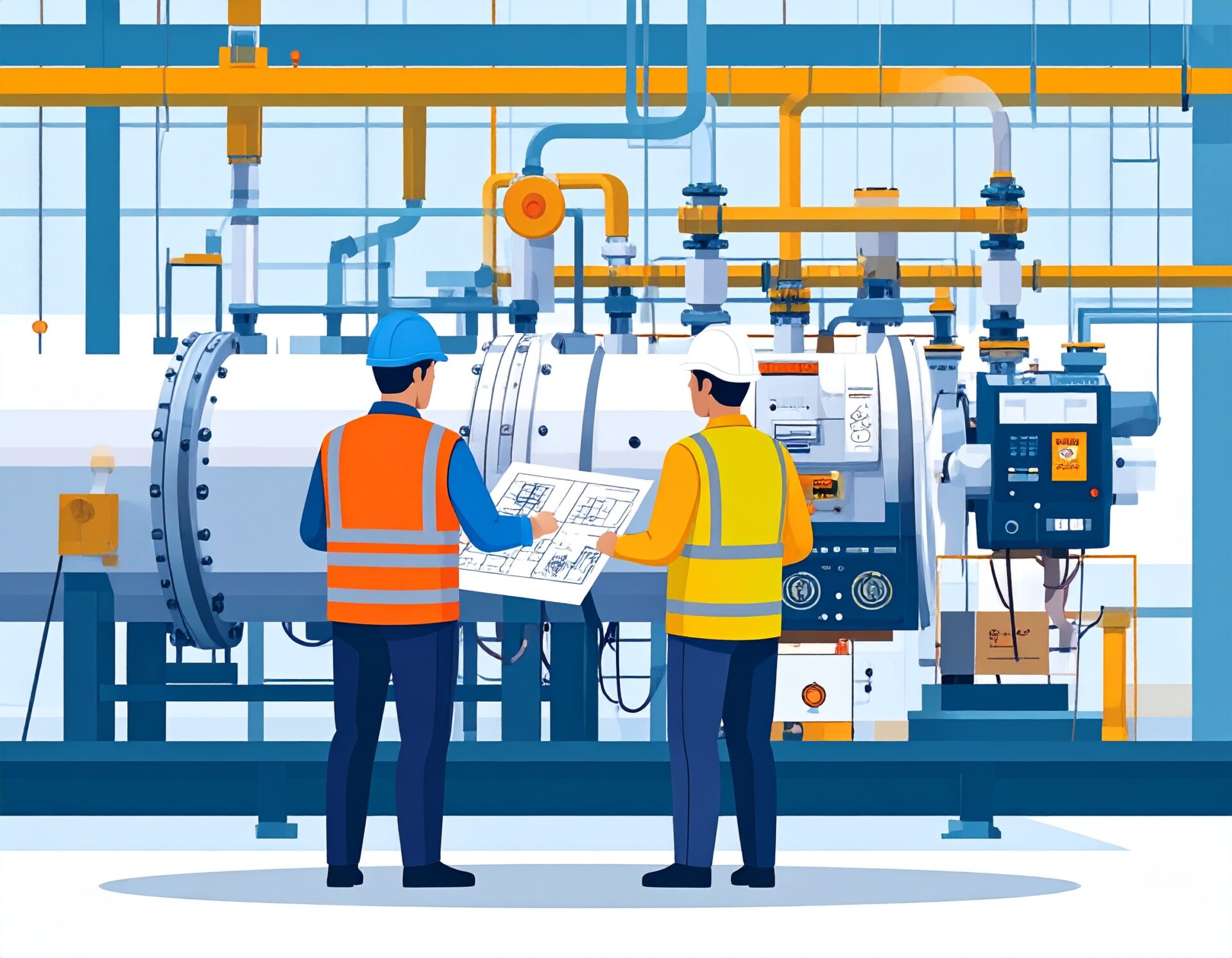What’s Direct Hiring All About?
Direct hiring is the DIY approach. You’re in the driver’s seat, handling everything from posting job ads to onboarding your new hire. It’s what most people picture when they think of hiring—putting out a “Help Wanted” sign (or, you know, a listing on Indeed), sifting through resumes, interviewing candidates, and making the offer yourself.
It’s hands-on, and for some manufacturers, that control feels just right. You get to build your team from the ground up, ensuring every hire fits your vision. But it’s not all smooth sailing, as we’ll see.
What’s a Manufacturing Staffing Agency?
A manufacturing staffing agency is like having a talent-finding sidekick. These pros specialize in the industry, connecting you with candidates who know their way around CNC machines, lean processes, or Industry 4.0 tech. They do the heavy lifting—sourcing, screening, and even handling payroll for temp or contract workers—while you focus on keeping production humming.
Agencies maintain networks of pre-vetted candidates, from entry-level assemblers to seasoned engineers. They’re built for speed and flexibility, whether you need one worker ASAP or a whole crew for a big project.
The Big Picture
Before we dive into the pros and cons, let’s talk about why this decision is such a big deal. Manufacturing is facing a talent crunch—Deloitte’s 2023 report predicts a shortfall of 2.1 million workers by 2030. Add in the pressure of tight deadlines and rising costs, and hiring the wrong person (or not hiring fast enough) can throw a wrench in your operations. Whether you go direct or with an agency, the goal is the same: get the right people, right now, without breaking the bank.
Direct Hiring: The Pros and Cons
Let’s start with the DIY route. Here’s what you’re signing up for with direct hiring.
Pros of Direct Hiring
-
Total Control: You call the shots. From the job description to the final offer, you shape the process to match your company’s vibe and needs.
-
Long-Term Investment: Direct hires are typically full-time employees, so you’re building a team that grows with you. They’re invested in your success, and you can train them to fit your processes perfectly.
-
Cost Savings (Sometimes): No agency fees mean you might save money upfront, especially for permanent roles. You’re not paying a middleman to find your talent.
-
Cultural Fit: Since you’re hands-on, you can prioritize candidates who mesh with your team’s values and work style.
Cons of Direct Hiring
-
Time Drain: Hiring eats up hours—writing ads, reviewing resumes, interviewing, negotiating. If you’re already stretched thin, it’s a lot to juggle.
-
Limited Reach: Unless you’ve got a massive network, you’re stuck with whoever’s on job boards or in your local area. Top talent, especially passive candidates, might slip through the cracks.
-
Risky Mistakes: A bad hire can sting. SHRM estimates a hiring flop can cost 30% of an employee’s first-year salary—think $18,000 for a $60,000 role.
-
Market Blind Spots: Without industry intel, you might offer uncompetitive salaries or miss out on what candidates want, like flexible shifts or upskilling perks.
Manufacturing Staffing Agency: The Pros and Cons
Now, let’s look at what an agency brings to the table. Spoiler: it’s not just about filling seats.
Pros of Staffing Agencies
-
Speedy Results: Agencies move fast. Need a welder by next week? They’ve got pre-screened candidates ready to go, minimizing downtime that costs you big.
-
Access to Talent Pools: Agencies tap into networks you can’t reach, including passive candidates who aren’t job-hunting. Tools like LinkedIn Recruiter give them an edge.
-
Flexibility: Whether it’s temp workers for a seasonal spike or temp-to-hire for testing the waters, agencies adapt to your needs. Perfect for projects or scaling up.
-
Reduced Risk: Many agencies handle initial vetting, background checks, and even payroll. If a worker isn’t a fit, they’ll replace them fast—no fuss.
Cons of Staffing Agencies
-
Cost Upfront: Agencies charge fees, which can feel steep compared to direct hiring. Fees vary, but they’re often a percentage of the worker’s salary or an hourly markup.
-
Less Control: You’re not running the show, which can feel weird if you’re used to hands-on hiring. You’ll need to trust the agency’s judgment.
-
Temporary Vibe: Temp or contract workers might not feel as invested in your company’s long-term goals, though temp-to-hire options can bridge that gap.
-
Finding the Right Fit: Not all agencies specialize in manufacturing. A generic one might send you candidates who don’t know a lathe from a laser.
When to Choose Direct Hiring
Direct hiring shines in certain situations. It’s likely your best bet if:
-
You’re Building for the Long Haul: Need permanent employees to grow your core team? Direct hiring lets you invest in people who’ll stick around.
-
You’ve Got Time: If you’re not in a rush and can dedicate weeks to the process, you can take your time to find the perfect fit.
-
You Want Full Control: Love being involved in every step? Direct hiring gives you the reins to craft your dream team.
-
You’re Filling Entry-Level Roles: For less specialized jobs, like assemblers, job boards or local networks might be enough.
When to Choose a Manufacturing Staffing Agency
Agencies are your go-to when speed, flexibility, or expertise is non-negotiable. Call one up if:
-
You Need Talent Yesterday: An open role is stalling production? Agencies can fill it fast to keep things moving.
-
You’re After Niche Skills: Roles like automation engineers or supply chain analysts require specific know-how. Agencies have the networks to find them.
-
You’re Scaling Up: Launching a new line or handling a big order? Agencies can supply a crew without overwhelming your HR team.
-
You Want to Test-Drive: Temp-to-hire lets you try out workers before committing, reducing the risk of a bad fit.
Tips for Making Either Work
Whichever path you pick, a few tricks can set you up for success:
-
Know Your Needs: Be crystal clear about the skills, experience, and culture fit you’re after. It saves time for both direct hiring and agencies.
-
Check the Market: A quick peek at salary trends (try Glassdoor) ensures your offers are competitive.
-
Vet Your Agency: If you go with an agency, pick one that lives and breathes manufacturing. Firms like Aerotek or resources at Talent Traction can point you in the right direction.
-
Stay Involved: Even with an agency, give feedback on candidates to fine-tune the search. For direct hiring, lean on your network for referrals.
The Bottom Line: It’s About What Fits You
There’s no universal “right” choice between a manufacturing staffing agency and direct hiring—it depends on your business, your timeline, and your goals. Direct hiring gives you control and builds lasting teams, but it’s a slog if you’re short on time or chasing niche talent. Agencies bring speed, flexibility, and access to hard-to-find pros, though you’ll pay for the convenience. The trick is knowing what your operation needs most right now.
So, next time you’re staring down an open role, weigh your options. Need a quick fix to keep the line moving? An agency’s your friend. Want to craft a dream team for the long haul? Roll up your sleeves and hire direct. Either way, you’re building a stronger business—one hire at a time.
FAQs
What’s the biggest difference between direct hiring and using a staffing agency?
The biggest difference is control versus convenience. With direct hiring, you manage the entire process yourself—from job ads to interviews. A staffing agency, on the other hand, takes the heavy lifting off your plate and brings pre-vetted candidates to you, often faster.
Is it cheaper to hire directly instead of going through an agency?
It can be—upfront, at least. You don’t pay agency fees with direct hiring. But factor in the time spent sourcing candidates, longer vacancies, and the cost of a bad hire, and sometimes an agency actually saves you more in the long run.
When should I consider using a staffing agency for manufacturing roles?
Staffing agencies shine when speed and specialization matter. If you need someone yesterday, have a niche role to fill, or want to test-drive workers with a temp-to-hire model, an agency is often the smarter play.
What kinds of roles can a manufacturing staffing agency help fill?
A good manufacturing agency covers the full spectrum—from general laborers and assemblers to CNC machinists, supply chain planners, and engineers. Some even handle executive placements or project-based hiring for large-scale expansions.
Are temp workers less committed than direct hires?
Not necessarily. While some temp roles are short-term by design, many workers use them as stepping stones to permanent gigs. Temp-to-hire models let both sides test the waters before committing, which can lead to strong long-term matches.
How fast can a staffing agency find someone?
Really fast. Many agencies already have vetted candidates in their system and can send someone your way in a matter of days—or even hours—depending on the role and urgency.
Do staffing agencies only offer temp workers?
Nope. While temp staffing is a big part of their offering, most agencies also provide contract-to-hire and direct placement services. It’s not just about temps—it’s about flexibility.
How do I know if a staffing agency is right for my business?
Ask yourself: Do you need to hire quickly? Is the role hard to fill? Are you short on internal hiring bandwidth? If you answered yes to any of those, a staffing agency is probably worth considering—just make sure they specialize in manufacturing.
Can I still be involved in hiring if I use an agency?
Absolutely. The best staffing partnerships are collaborative. You can provide input on candidate profiles, review shortlists, and even conduct final interviews—without handling the day-to-day grind of sourcing.
What should I look for in a manufacturing staffing agency?
Look for one with deep manufacturing experience, a clear process, and a strong network. Bonus points if they offer flexible hiring models (temp, direct, temp-to-hire) and have a track record in your niche—like automotive components or industrial equipment.




